Origin and History:
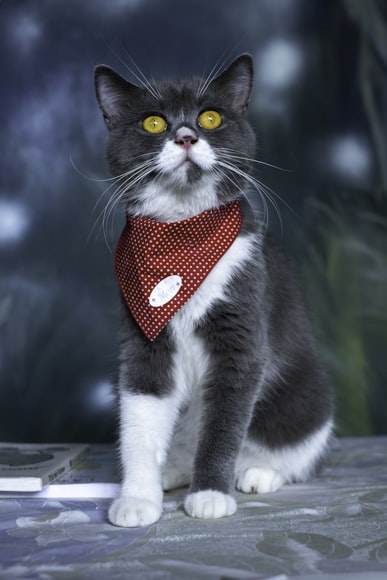
Origin and History
The British Shorthair is a beloved feline breed with an illustrious history dating back to ancient times. Its roots can be traced to the domesticated cats brought to Britain by the Romans in the first century AD. These cats were valued for their exceptional hunting abilities, particularly in controlling rodent populations.
Over centuries, these cats interbred with local felines and evolved to adapt to the harsh British climate. Natural selection favored cats with dense, weather-resistant fur, powerful physiques, and a robust immune system. By the 19th century, the British Shorthair had become a distinct breed, known for its exceptional qualities.
Physical Characteristics
The British Shorthair is a medium to large-sized cat, with a muscular and well-proportioned body. Its most distinctive feature is its dense, plush coat, which comes in a wide range of colors and patterns. The most common coat colors include blue, blue-cream, silver tabby, and golden tabby.
The breed has a round, broad head with prominent cheekbones and large, wide-set eyes. The eyes are typically copper-colored or gold, giving the British Shorthair a distinctive and endearing expression.
Temperament and Personality
British Shorthairs are renowned for their gentle and affectionate nature. They are playful and energetic as kittens but mature into dignified and composed companions. They love to interact with their human families and will often seek attention and affection.
Despite their playful side, British Shorthairs are known for their calm and laid-back demeanor. They are not prone to excessive meowing or destructive behavior. They make excellent pets for families with children or other pets.
Health and Care
British Shorthairs are generally healthy cats with a lifespan of 12-15 years. However, like all breeds, they are prone to certain health conditions. These include:
- Hypertrophic cardiomyopathy: A condition that affects the heart muscle
- Polycystic kidney disease: A condition that affects the kidneys
- Gingivitis: A condition that affects the gums
Regular veterinary checkups and preventive care can help to detect and manage these conditions early on.
Grooming and Maintenance
The British Shorthair’s dense coat requires regular grooming to maintain its health and appearance. Brushing the coat 2-3 times per week will help to remove loose hair and prevent mats. The breed is also prone to shedding, particularly during the spring and fall seasons.
Other grooming needs include:
- Ear cleaning to prevent infections
- Nail trimming to prevent overgrowth
- Dental care to maintain healthy teeth and gums
Conclusion
The British Shorthair is a truly remarkable feline breed that combines physical beauty, gentle nature, and exceptional health. Its unique history and distinct characteristics make it a beloved companion for cat enthusiasts worldwide. With proper care and attention, British Shorthairs can provide years of love, loyalty, and unwavering affection to their human families.
Physical Appearance:
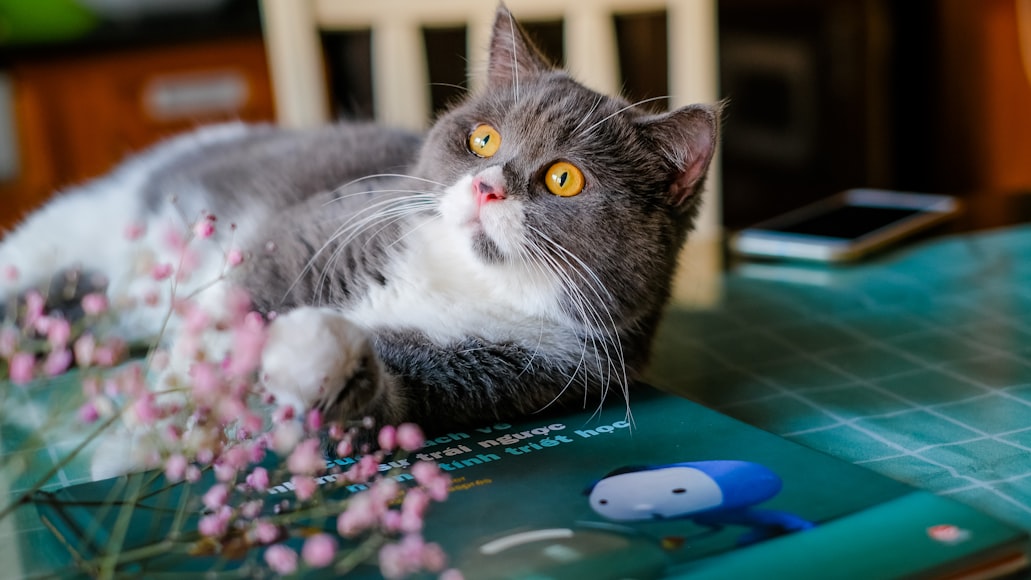
As a dedicated British Shorthair Cat blogger, I am perpetually mesmerized by the unparalleled physical attributes that define this exquisite breed. The British Shorthair’s allure extends far beyond its soft, plush fur and captivating eyes; it is an embodiment of feline grace and nobility.
1. A Coat of Distinction: A Soft Embrace
The British Shorthair’s most defining characteristic is its short, dense, plush coat. It feels like a soft embrace, enveloping the cat in a velvety cushion of comfort. The coat is composed of a dense undercoat and a slightly longer topcoat, providing excellent insulation for the cat in both warm and cold climates.
The coat’s plush texture is a result of its unique structure. Each individual hair is short and slightly curved, giving the coat a velvety feel. The dense undercoat traps air, creating an insulating layer that keeps the cat warm in winter. The topcoat sheds water, making the British Shorthair a surprisingly adept outdoor companion.
2. Rounded Head: A Symphony of Symmetry
The British Shorthair’s head is a perfect circle, giving the cat an air of gentle wisdom. Its large, round eyes are set wide apart, creating a look of alertness and intelligence. The eyes are typically copper or gold, deepening in intensity as the cat ages.
The short, wide nose and small, rounded ears contribute to the British Shorthair’s distinctive facial expression. The overall effect is one of perfect symmetry and feline charm.
3. Expressive Eyes: A Window to the Soul
The British Shorthair’s eyes are perhaps its most striking feature. They are large, round, and expressive, capable of conveying a wide range of emotions. The copper or gold color of the eyes is said to be a reflection of the cat’s intelligence and personality.
When the British Shorthair is relaxed, its eyes are soft and gentle, inviting the observer to share in its contentment. When it is playful, its eyes sparkle with mischief, promising hours of feline fun. And when it is curious, its eyes widen and focus intently, revealing a mind eager to learn.
4. Muscular Body: A Feline Athlete
Beneath its soft, plush coat, the British Shorthair has a muscular, well-balanced body. Its chest is broad, its back is straight, and its tail is short and thick. This structure gives the cat a powerful appearance and makes it surprisingly agile for its size.
The British Shorthair’s strong legs and muscular shoulders allow it to climb, jump, and explore with ease. Its rounded paws provide excellent traction, making it a confident and capable hunter.
5. Weight and Size: A Feline of Substance
Adult British Shorthair cats typically weigh between 7 and 13 pounds, with males tending to be slightly larger than females. They are considered a medium-sized breed, but their dense, plush coat and muscular body give them the appearance of a much larger cat.
The British Shorthair’s size and weight make it an ideal companion for families with children and other pets. It is a gentle and affectionate cat that enjoys being around its human companions.
Conclusion
The physical appearance of the British Shorthair Cat is a testament to the breed’s unique history and breeding. Its short, dense, plush coat, rounded head, expressive eyes, muscular body, and weight and size combine to create a feline masterpiece that is both beautiful and endearing. As a devoted British Shorthair Cat blogger, I am eternally captivated by the physical attributes of these extraordinary creatures and privileged to share their beauty with the world.
Temperament and Personality:
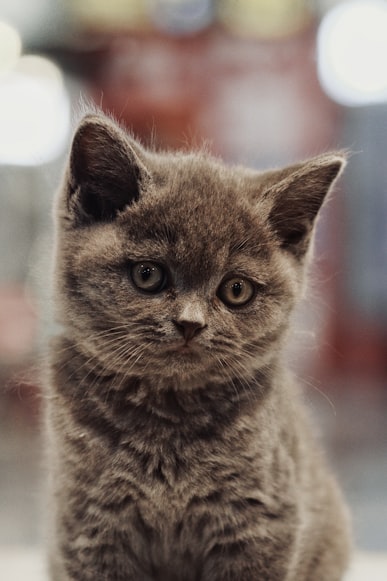
The British Shorthair Cat, hailing from the United Kingdom, has captivated cat enthusiasts worldwide with its distinctive appearance and captivating personality. Known for its calm demeanor, affectionate nature, and independent spirit, the British Shorthair makes an ideal companion for families and individuals seeking a loyal and loving feline friend.
Calm and Composed
One of the most striking personality traits of the British Shorthair is its remarkable ability to maintain composure even in the most chaotic of situations. These cats are not easily startled or stressed, making them ideal for homes with children or other pets. Their serene nature extends to their interactions with humans, as they rarely exhibit aggression or destructive behaviors.
Affectionate and Tolerant
Despite their independent streak, British Shorthairs are also highly affectionate cats. They enjoy spending time with their human companions, seeking out cuddles and laps to curl up on. Their tolerance and patience extend to other pets, making them suitable for multi-pet households. British Shorthairs are particularly known for their gentle and loving nature towards children, making them wonderful companions for families.
Independent Spirit
While British Shorthairs enjoy human companionship, they also possess an independent spirit. They are content spending time alone, playing with toys or exploring their surroundings. This independence makes them ideal for busy individuals who may not have a lot of time to spend interacting with their pets. However, British Shorthairs will always be there to greet their owners with a warm purr and a loving headbutt.
Playful and Active
British Shorthairs are not known for being particularly athletic cats, but they do enjoy a good play session. They love chasing toys, batting balls around, and engaging in interactive games with their humans. Providing your British Shorthair with plenty of opportunities for exercise will help keep them healthy and happy.
Vocalization
British Shorthairs are generally quiet cats, but they do have a distinct vocalization known as the “chirp.” This high-pitched sound is often used to communicate with their humans, particularly when they want something, such as food or attention. While not excessive, the chirp can add a touch of charm and vocalization to your home.
Grooming and Care
British Shorthairs have a dense, double-layered coat that requires regular brushing to remove dead hair and prevent matting. Brushing your cat a few times a week will help keep their coat healthy and shiny. Other than regular brushing, British Shorthairs are relatively low-maintenance cats. They do not require frequent bathing, and their nails need to be trimmed occasionally.
Health
British Shorthairs are generally healthy and robust cats, but like all breeds, they are prone to certain health conditions. Some common health concerns among British Shorthairs include hypertrophic cardiomyopathy (HCM), a heart condition, and polycystic kidney disease (PKD). Regular veterinary checkups and proper nutrition can help prevent or manage these conditions.
Conclusion
The British Shorthair Cat is a delightful and versatile breed that combines a calm and affectionate temperament with an independent spirit. They are ideal companions for families, individuals, and anyone looking for a loving and loyal feline friend. With their gentle nature, playful personalities, and relatively low-maintenance needs, British Shorthairs make wonderful additions to any home. Their serene presence and ability to bring joy to their owners make them truly exceptional companions.
Health and Care:
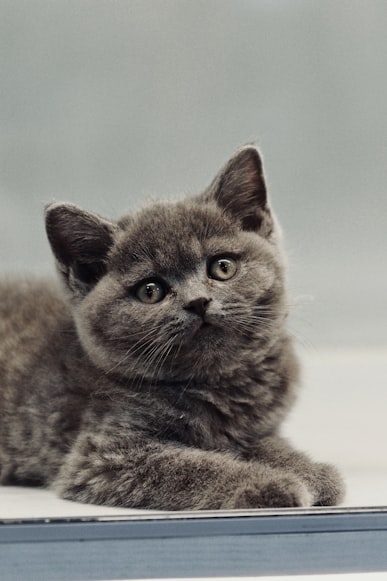
Introduction:
The British Shorthair, a beloved breed known for its adorable plush appearance and endearing personality, is generally a healthy feline companion. However, like all breeds, they may be prone to certain health conditions, making proper care and regular veterinary check-ups crucial for their well-being.
Common Health Issues:
While British Shorthairs are generally robust and healthy with proper care, they can inherit certain genetic predispositions for certain health conditions. Some of the most commonly seen health issues in British Shorthairs include:
- Hypertrophic Cardiomyopathy (HCM): This is a condition that affects the heart muscle, causing it to thicken and enlarge. It can lead to various heart problems, including congestive heart failure. HCM is the leading cause of sudden death in cats, including British Shorthairs.
- Polycystic Kidney Disease (PKD): This is a progressive condition that affects the kidneys, causing the formation of cysts and gradual loss of kidney function. It can ultimately lead to kidney failure.
- Dental Problems: British Shorthairs can be prone to dental issues such as gingivitis and periodontal disease. Regular dental check-ups and proper dental hygiene are essential to prevent dental problems.
- Eye Problems: British Shorthairs may experience eye problems such as entropion (inward rolling of the eyelid) and progressive retinal atrophy (PRA). These conditions can cause discomfort and vision impairment.
Preventive Care:
Regular veterinary check-ups are vital for early detection and treatment of any health conditions. Your veterinarian can perform physical exams, vaccinations, and blood tests to monitor your British Shorthair’s health and identify any potential issues.
- Vaccinations: Vaccinations protect your cat against common infectious diseases such as feline panleukopenia, feline calicivirus, and feline herpesvirus.
- Dental Hygiene: Regular brushing of your cat’s teeth helps prevent dental problems. You can also provide dental treats and dental water additives to maintain oral health.
- Diet and Exercise: Providing a balanced and nutritious diet is essential for a healthy weight and overall well-being. Encourage regular exercise through play and interactive toys to prevent obesity and joint problems.
- Grooming: British Shorthairs have a dense, plush coat that requires regular brushing to remove loose hair and prevent matting. This also helps distribute skin oils and maintain a healthy coat.
Signs of Illness:
It is important to pay attention to your British Shorthair’s behavior and appearance for any signs of illness. Common symptoms to watch for include:
- Changes in appetite or thirst
- Lethargy or decreased activity
- Vomiting or diarrhea
- Difficulty breathing or panting
- Eye or nasal discharge
- Unexplained weight loss or gain
- Lumps or bumps on the body
If you notice any of these symptoms, seek veterinary attention promptly for evaluation and treatment.
Conclusion:
British Shorthairs are generally healthy cats with a long lifespan. However, it is important to be aware of their potential health concerns and provide proper care to minimize their risk. Regular veterinary check-ups, preventive care measures, and a loving home environment are essential to ensure the health and happiness of your beloved British Shorthair companion.
Grooming:
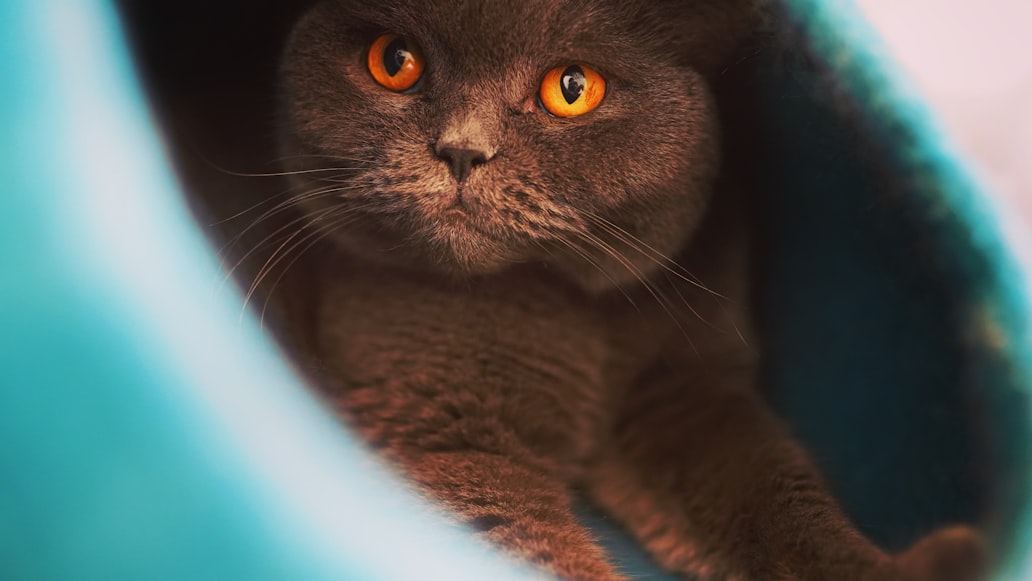
As a proud owner of a majestic British Shorthair cat, you understand the importance of maintaining their captivating plush coat. This exquisite feline breed is renowned for its luxurious fur, and proper grooming is essential to preserve its beauty and ensure their overall well-being. Here’s a comprehensive guide to provide your furry companion with the utmost care and attention.
Regular Brushing
The cornerstone of British Shorthair grooming lies in regular brushing. Their dense, double-layered coat tends to trap dead hair and debris, which can lead to matting if not addressed promptly. Brushing at least once a day, preferably twice during shedding seasons, helps remove loose hair, dirt, and prevent tangles.
A specialized brush designed for cats with short to medium-length fur is recommended. Avoid using brushes with sharp bristles or combs with narrow teeth, as they can damage the delicate undercoat. Gentle, sweeping motions in the direction of hair growth will effectively remove unwanted debris without causing discomfort to your feline friend.
Occasional Bathing
While British Shorthair cats are generally clean animals and do not require frequent bathing, occasional baths can be beneficial for maintaining their coat’s health and hygiene. Bathe your cat every 8-12 weeks, or more often if they become excessively soiled.
Use a shampoo specifically formulated for cats, as human shampoos can be harsh on their sensitive skin. Gently massage the shampoo into the coat, avoiding the eyes and ears. Rinse thoroughly with lukewarm water and use a towel to gently pat them dry. Allow your cat to fully dry before letting them roam freely, as damp fur can lead to chills.
Nail Trimming
Healthy nails are essential for preventing scratching damage to furniture or your own skin. Trim your cat’s nails once or twice a month using specially designed cat nail clippers. Hold their paw securely and carefully cut only the white tips of the nails, avoiding the pink quick, which contains nerves and blood vessels.
Ear Cleaning
Regular ear cleaning is important for preventing infections and maintaining optimal ear health. Check your cat’s ears weekly for any signs of wax buildup, redness, or odor. If necessary, gently clean their ears using a cotton ball or cloth dampened with a veterinarian-approved ear cleaner. Avoid using cotton swabs, as they can damage the delicate ear canal.
Toothbrushing
Just like humans, cats require regular dental care. Brush your cat’s teeth at least once a week using a soft-bristled toothbrush and pet-specific toothpaste. Gently brush their teeth in circular motions, focusing on the gum line to remove tartar and plaque buildup.
Other Grooming Tips
- Wipe their eyes: Use a clean, damp cloth to gently wipe away any eye discharge or debris.
- Trim whiskers: Do not trim your cat’s whiskers, as they are essential for their sense of balance and spatial awareness.
- Provide a scratching post: Scratching is a natural instinct for cats, so provide them with a designated scratching post to prevent damage to furniture.
Benefits of Proper Grooming
Regular grooming offers numerous benefits for your British Shorthair cat, including:
- Maintains a healthy, plush coat
- Prevents matting and tangles
- Removes loose hair and debris
- Promotes skin and coat health
- Detects and prevents health issues
- Strengthens the bond between you and your feline companion
Conclusion
Grooming your British Shorthair cat is not merely a task but an essential aspect of their well-being. By adhering to these guidelines, you can ensure that your furry friend maintains their luxurious coat, radiant health, and unwavering love. Remember, consistent grooming demonstrates your commitment to their happiness and longevity.
Feeding:
As a devoted companion to your British Shorthair cat, providing optimal nutrition is paramount to ensuring their well-being and longevity. The following article delves into the crucial aspects of feeding your feline friend, exploring the importance of a high-quality diet and adequate hydration.
Tailoring Your Cat’s Diet to Their Specific Needs
British Shorthairs are known for their distinctive physical characteristics, including a dense, double-layered coat and a muscular body. These unique features necessitate a diet that caters to their specific nutritional demands.
High-Quality Dry Food:
Premium dry food specifically formulated for British Shorthairs provides a balanced blend of proteins, carbohydrates, fats, vitamins, and minerals. Look for products that contain high-quality animal proteins, such as chicken, fish, or lamb, as these are essential for maintaining muscle mass and supporting overall health.
Wet Food:
While dry food is convenient and cost-effective, wet food can provide additional moisture and hydration. It is also a good option for cats who have digestive issues or dental problems. Choose wet food with a high meat content and avoid those with excessive fillers.
Raw Food:
Some owners opt for a raw food diet for their British Shorthairs. This diet typically consists of uncooked meat, bones, and organs. While it can be beneficial for some cats, it is essential to ensure that the food is sourced from a reputable supplier and handled properly to minimize the risk of bacterial contamination.
Treats and Supplements:
Treats can be given in moderation as a reward or a way to promote bonding. However, they should not constitute a significant portion of your cat’s diet. Consider offering occasional treats that are low in calories and carbohydrates.
Supplements, such as omega-3 fatty acids or probiotics, can be beneficial for supporting your cat’s health. However, always consult with your veterinarian before administering any supplements.
Importance of Hydration
Adequate water intake is crucial for your British Shorthair’s health. Fresh, clean water should be available at all times. Encourage your cat to drink by providing multiple water bowls in different locations throughout your home.
Cats are notoriously finicky drinkers, so consider these tips to increase their water consumption:
- Add some tuna juice or chicken broth to their water.
- Use a water fountain, as the sound of running water is often appealing to cats.
- Place water bowls in areas where your cat spends time, such as near their food or sleeping spot.
- Avoid placing water bowls near their litter box, as cats do not like to drink near where they eliminate.
Monitoring Your Cat’s Diet and Hydration
Regularly monitor your British Shorthair’s weight and overall health to ensure that their diet is meeting their needs. If you notice any significant changes in their appetite, thirst, or body weight, consult with your veterinarian promptly.
Conclusion
By providing a high-quality diet tailored to your British Shorthair’s specific requirements and ensuring adequate hydration, you can contribute significantly to their overall well-being. Remember to consult with your veterinarian for personalized advice and to make any necessary dietary adjustments as your cat ages or experiences health changes. By following these guidelines, you can provide your beloved companion with a life filled with optimal nutrition and vitality.
Exercise:
British Shorthair cats are known for their laid-back and affectionate nature, but these gentle giants also need regular exercise and enrichment to maintain their physical and mental well-being.
Moderate Levels of Activity
British Shorthair cats are not particularly high-energy felines, but they still need moderate levels of exercise to stay healthy and active. Aim for at least 30 minutes of playtime each day, divided into short sessions throughout the day.
-
Interactive Play: Engage your cat with interactive toys such as wands, balls, or laser pointers. Encourage them to chase, jump, and pounce, providing them with both physical and mental stimulation.
-
Structured Exercise: Set aside dedicated time each day for structured exercise, such as walking them on a harness or using a cat wheel. These activities provide a controlled environment for your cat to burn off excess energy.
-
Environmental Exploration: Provide your cat with plenty of opportunities to explore their environment by creating a stimulating indoor space. Use cat trees, window perches, and scratching posts to encourage them to climb, jump, and scratch.
Importance of Providing Enrichment
Enrichment is anything that provides mental and physical stimulation for your cat, promoting their well-being and preventing boredom.
-
Interactive Toys: Puzzle toys, treat dispensers, and electronic toys challenge your cat’s cognitive abilities and keep them engaged.
-
Environmental Enrichment: Rotate toys regularly, introduce new objects, and provide hiding places and nooks for your cat to explore. This encourages their curiosity and provides a sense of security.
-
Socialization: If possible, consider providing your cat with a companion. Cats enjoy interacting with other cats, and it can greatly enrich their lives.
Benefits of Exercise and Enrichment
Regular exercise and enrichment offer numerous benefits for British Shorthair cats:
-
Maintains Physical Health: Exercise promotes a healthy weight, strengthens muscles and bones, and improves cardiovascular health.
-
Promotes Mental Well-being: Mental stimulation prevents boredom, reduces stress, and improves cognitive function.
-
Strengthens the Bond: Playtime and enrichment activities create opportunities for you to interact with your cat, strengthening your bond.
-
Reduces Destructive Behaviors: Exercise and enrichment provide an outlet for excess energy, reducing the likelihood of destructive behaviors such as scratching furniture or clawing at curtains.
Tailoring Exercise to Your Cat’s Needs
Every British Shorthair cat is unique, so it’s important to tailor their exercise and enrichment routine to their individual needs and preferences.
-
Age: Older cats may require less exercise than younger kittens, while kittens may need more frequent and shorter playtimes.
-
Health Conditions: Cats with certain health conditions may need to adjust their exercise routine accordingly. Consult your veterinarian for guidance.
-
Personality: Some cats are naturally more playful than others. Observe your cat’s behavior and adjust their exercise and enrichment accordingly.
Conclusion
Exercise and enrichment are essential elements for the well-being of British Shorthair cats. By providing moderate levels of activity and a stimulating environment, you can help your feline friend stay healthy, happy, and engaged. Remember to tailor their routine to their individual needs and preferences, and consult your veterinarian if you have any concerns.
Training:
Renowned for their distinctive plush coats and charming personalities, British Shorthair cats are not only adorable but also highly intelligent and trainable. With a little patience and consistency, you can teach your beloved British Shorthair a variety of basic commands and socialization skills that will enhance your bond and make them an even more well-rounded companion.
Unlocking the Intelligence of British Shorthair Cats
British Shorthair cats possess a keen intelligence and a natural curiosity, making them receptive to training. Their calm and patient temperament allows them to absorb information effectively while maintaining their playful and affectionate nature.
Understanding their unique learning style is crucial. British Shorthairs often prefer a more hands-on approach to training, where they can observe and imitate your actions. Positive reinforcement, such as treats or praise, is highly effective in motivating these intelligent felines.
Basic Commands: A Foundation for Communication
Start with teaching your British Shorthair basic commands, such as “sit,” “stay,” and “come.” Begin by introducing the command in a quiet and distraction-free environment. Repeat the command clearly and pair it with a hand gesture or treat. With consistent practice and patience, your cat will gradually understand the association between the command and the desired behavior.
Socialization: Fostering Confidence and Well-being
Socialization is equally important for British Shorthair cats, as it helps them adapt to different environments and interact confidently with other pets and humans. Early socialization is key, especially if you plan to introduce your cat to other feline companions or young children.
Expose your cat to a variety of experiences in a gradual and controlled manner. Take them for supervised walks outside, introduce them to friendly pets, and allow them to interact with trusted visitors. Positive and rewarding experiences will help your cat develop social confidence and prevent anxiety or fear in new situations.
Tips for Successful Training
- Start training early: Begin when your cat is a kitten, as they are more receptive to learning and forming habits.
- Keep sessions short and frequent: Break down training into brief, 5-10 minute sessions to maintain your cat’s attention and engagement.
- Reward positive behavior: Offer treats, praise, or a favorite toy as a reward for desired behaviors.
- Be patient and consistent: Training takes time and consistency. Avoid punishing your cat for mistakes and instead focus on positive reinforcement.
- Observe your cat’s body language: Pay attention to your cat’s reactions to training. If they show signs of stress or disinterest, take a break and try again later.
- Involve family members: Encourage everyone in the household to participate in training to ensure consistency and reinforce commands.
Benefits of Training and Socialization
Training and socialization provide numerous benefits for British Shorthair cats, including:
- Improved communication: Basic commands allow you to communicate with your cat effectively, making it easier to control their behavior and prevent unwanted actions.
- Enhanced safety: Teaching your cat to “come” or “stay” can be crucial in emergency situations or when exploring the outdoors.
- Bonding and enrichment: Training and socialization strengthen your bond with your cat by providing mental stimulation and positive experiences.
- Prevention of behavioral problems: Well-trained and socialized cats are less likely to exhibit destructive behaviors, such as scratching or biting.
Remember, training and socialization are ongoing processes that require patience, consistency, and a loving approach. By embracing these principles, you can unlock the full potential of your intelligent and trainable British Shorthair cat, creating a harmonious and fulfilling companionship for years to come.
Unique Characteristics:
Renowned for its endearing teddy bear-like appearance and perpetual smiley grin, the British Shorthair cat captivates hearts with its irresistible personality and exceptional attributes. As proud pet bloggers dedicated to this beloved breed, we embark on a journey to unravel its unique characteristics, making it a treasured companion in countless homes worldwide.
Distinctive “Teddy Bear” Appearance: A Feline Masterpiece
The British Shorthair cat’s charming appearance is undoubtedly one of its defining characteristics. With its dense, plush coat that resembles the softest of teddy bears, it exudes an irresistible snuggle factor. The coat comes in a wide array of colors and patterns, including classic blue, enchanting cream, sophisticated black, and even striking bicolors and tabby markings.
The shape of its face also contributes to its teddy bear-like persona. Rounded contours, full cheeks, and a compact body create a distinctive silhouette that makes this breed instantly recognizable. Its ears are small and slightly folded at the tips, adding to its adorable charm.
Characteristic “Smiley” Expression: A Perpetual Mood Booster
One of the most captivating features of the British Shorthair cat is its permanent “smiley” expression. This endearing demeanor is created by the shape of its mouth, which curves slightly upward in a gentle smile. Coupled with its high-set eyes, the cat exudes an air of perpetual contentment and cheerfulness.
This enchanting facial expression has earned the British Shorthair cat the affectionate nickname “Smiley Cat.” It’s a constant reminder of the joy and affection that these felines bring into our lives.
Independent Spirit: A Trailblazer in the Feline World
While the British Shorthair cat is undoubtedly affectionate with its family, it also possesses an independent spirit that sets it apart from many other breeds. This self-sufficient nature makes it an ideal companion for those who value their own space and independence.
British Shorthair cats are not known for being overly vocal, preferring to observe and explore their surroundings with a quiet curiosity. They delight in solitary play sessions and enjoy spending time in their favorite nooks and crannies.
Calm and Affectionate Nature: A True Purrfect Companion
Despite their independent streak, British Shorthair cats are also known for their calm and affectionate nature. They crave interaction with their human family and enjoy being part of everyday activities.
These cats form strong bonds with their owners and are incredibly loyal and protective. They are known for their gentle purring and often seek out cuddles and petting sessions. Their affectionate nature makes them exceptional companions for families, seniors, and individuals looking for a loving and tranquil feline companion.
Conclusion: A Treasured Breed with Exceptional Attributes
The British Shorthair cat is a true icon in the feline world, captivating hearts with its endearing teddy bear appearance, perpetual smiley expression, independent spirit, and gentle affectionate nature. It’s a breed that has earned its place as a cherished companion in countless homes worldwide. Whether you’re looking for a loyal and loving companion or simply a feline that brings a smile to your face, the British Shorthair cat is an exceptional choice that will undoubtedly enrich your life for years to come.



















